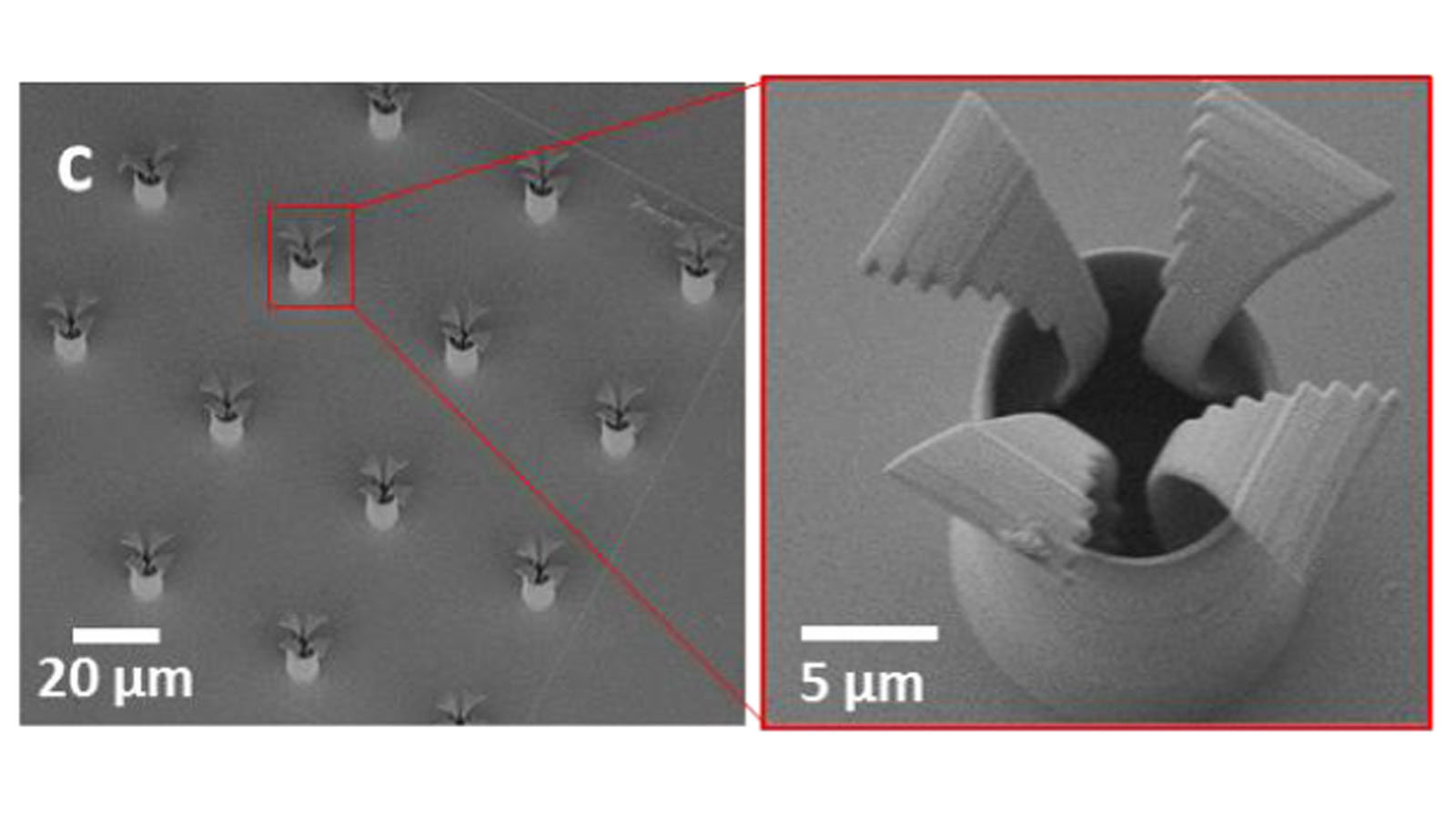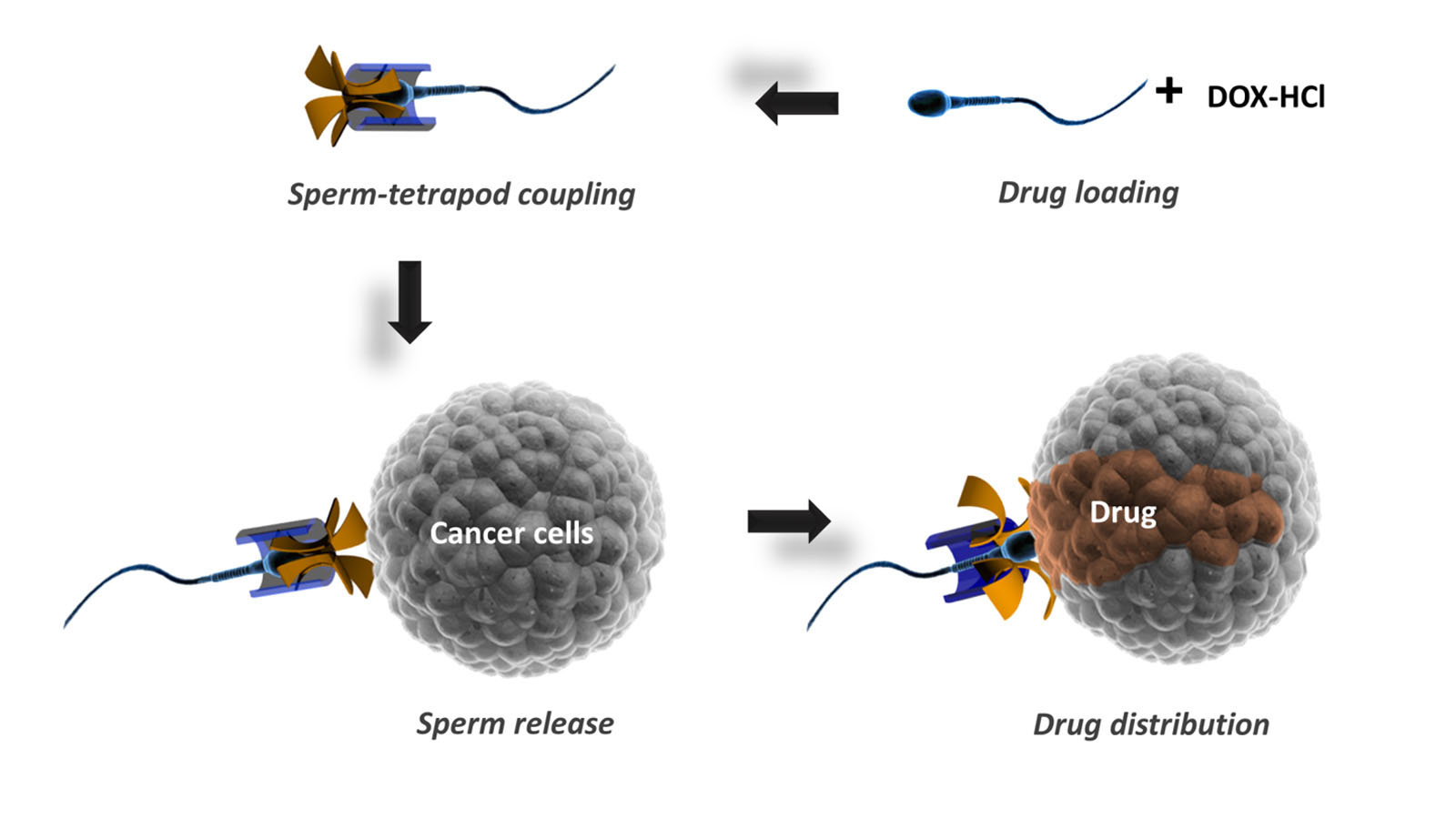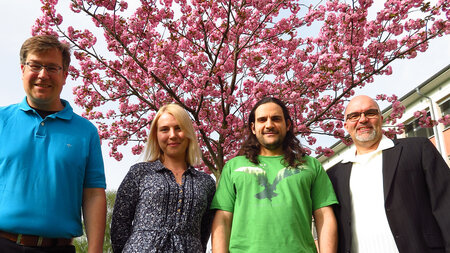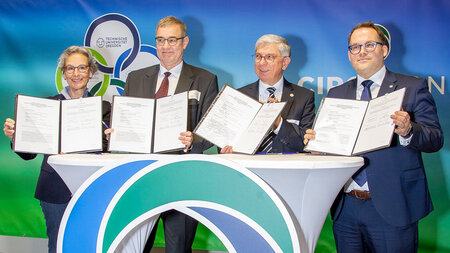Hybrid micromotors for the fight against cancer
Scientists of the Chemnitz University of Technology and the Leibniz Institute for Solid State and Materials Research Dresden IFW develop a new method for the possible treatment of lower abdomen tumors
-

Scanning electron microscope-Picture of the tetrapods. Photo: Leibniz IFW Dresden -

Schematic representation: sperm acts as the active substance feeder by being encased in a magnetic tetrapod of 3D printed micro channels and navigated into the cancer cell. Graphic: Leibniz IFW Dresden
It is still fundamental research but might be a promising approach to the fight against cancer in the uterus or cervix, respectively. Prof. Oliver Schmidt, Chair of the Professorship of Materials for Nanoelectronics at the Chemnitz University, and a research team of the Leibniz Institute for Solid State and Materials Research Dresden (IFW) succeeded to use cattle sperm as feeder for anti-cancer agents in the petri dish in laboratory test. For this purpose they developed a micro channel coat with four legs – a “Tetrapod” – of the size of a tenth of the human hair with help of the 3D nano lithography a special manufacturing process for the production of nano structures. The researchers encased a single sperm with the tetrapod and covered it with iron. Via a magnetic field the researchers managed to navigate the tetrapod and thus the sperm. The sperm itself was loaded with “Doxorubicin” an active substance authorized for the treatment of lower abdomen cancer and then purposefully navigated into the cancer cell where the active substance was released. Some of the cancer cells that were treated with doxorubicin loaded sperm died.
The fundamental research in this field is still in its very beginnings: At first extensive experiments for the efficiency and biocompatibility of the technology have to be investigated before the first animal tests can be performed. Test series on the human being are still afar.
Sperm is the ideal active substance feeder
“Sperm is ideal as active substance feeder due to its natural condition and its advantage to remain for a longer period of time in the deployment location uterus”, explains Prof. Schmidt. Furthermore, sperm is able to carry great loads of active substances. “Their efficient and effective self-propulsion allows the ideal use for the direct injection of active substances into the cancer cell”, illustrates the researcher.
Cooperation between the Chemnitz University and the Leibniz Institute for Solid State and Materials Research Dresden (IFW): Reinforced research for medical applications
Fundamental for the targeted development of special micromotors were the results of the medical research cooperation between the Chemnitz University and the Leibniz Institute for Solid State and Materials Research Dresden regarding nano membranes. For the further intensification of the current and other medical applications a new research building is built on the Chemnitz University campus: the Zentrum für Materialien, Architekturen und Integration von Nanomembranen (MAIN).
Further information are available from: Prof. Oliver Schmidt, email o.schmidt@ifw-dresden.de
Original publishing: https://arxiv.org/abs/1703.08510
Background information:
Lower abdomen types of cancer include the malignant cell changes in the cervix (cervical carcinoma) and the uterus (endometrical carcinoma). On average, women at the age of 34 are diagnosed with the preliminary stage of cervical cancer and on the invasive cervical cancer at the age of 55. The frequency of occurrence varies widely throughout the world. Overall 4,600 cervical cancer diagnoses are annually confirmed in Germany.
Further information: www.krebsinformationsdienst.de (German Cancer Research Center)
Matthias Fejes
27.04.2017





